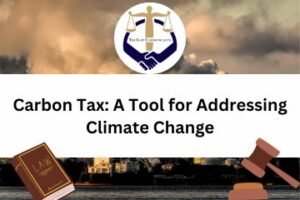National Emergency
Written by: Ms Devshree Dangi
A plea seeking compensation for the losses incurred by a family during National Emergency in 1975 said it was fraud and unconstitutional.
In India, the president has a right to declare an emergency over the complete territory of India in a situation wherein the security of the nation is threatened on the grounds of war, external aggression or armed rebellion.
But the president can declare it only on the written advice of the cabinet. Also, a special majority is required for the same.
At a time president can declare an emergency only for six months. Various provisions related to National emergency care are provided in the Indian Constitution. No person in any situation can be deprived of his fundamental rights given by the Indian Constitution except in the situation of a national emergency declared by the president of India.
Article 359 of the Indian Constitution gives the right to the president of India to suspend the right to approach the court for the enforcement of fundamental rights during a National emergency except for the rights under Article 20 and Article 21.
Article 352 of the Indian Constitution deals with the provisions related to the national emergency. Article 358 is, therefore, to deal with the suspension of fundamental rights guaranteed by Article 19 and Article 359 deals with the suspension of the rest of the fundamental rights except those rights guaranteed by Article 20 and Article 21.
Indian Constitution imposes a duty to the union to protect every state against external aggression and internal disturbance and ensure that the government of every state is carried on in accordance with the provisions of the constitution, under Article 355.
The Government of India is duty-bound to protect the citizens of India against external aggression and armed rebellion by declaring the National Emergency.
And the fundamental rights are not enforceable only when the National emergency is declared by the President of India.
Using this right on June 25, 1975, the Prime Minister of India proclaimed National Emergency.
“The president has proclaimed emergency, there is nothing to panic about.” the words of prime minister Indira Gandhi that time in 1975.
According to the government of that time, the goal of this national emergency in the country was to control internal disturbance for veg the constitutional rights were suspended and freedom of speech and press were withdrawn.
The prime minister of India in 1975 had given three main reasons for the proclamation of National Emergency and according to her they were;
- According to her India’s security and democracy was in great danger owing to the movement launched by Jayaprakash Narayan.
- According to her, there was a need for rapid economic development and upliftment of the underprivileged.
- At the time of emergency Indira Gandhi, the Prime Minister of India in 1975 warned against the intervention of parts from abroad which good destabilized and weaken India.
The main reasons those were responsible for the National Emergency in 1975:
- Navnirman Andolan in Gujarat
The movement was initiated by the student of a college in Gujarat concerning the fees of the college but later they demanded the dismissal of the state government.
The movement was started in 1973 and ended in March 1975. The movement was successful and the prime Minister of India in 1975 declared the fresh election of state government in Gujarat.
- JP movement
After the successful completion of Nava Nirman Andolan in Gujarat, a similar movement was launched in Bihar. the movement was headed by Jaya Prakash Narayan in 1974.
- The railway protest
This protest was led by George Fernandes and lasted for 3 weeks in May 1974.
- The Raj Narain Verdict
It was a petition filed in the Allahabad High Court by a socialist leader Raj Narayan accused the Prime Minister of India in 1975 of having won the elections through corrupt practices. The allegations were made against her that she spent more money than was allowed and further the campaign for the election in her favour was carried out by government officials.
It was the first time in the history of India that a prime minister got tested in court. All these matters that took place at that time were internal disturbances according to the Government of that time in 1975. The decision of the proclamation of National Emergency was highly criticized by many politicians and people in India.
Recently the supreme court heard a plea filed by a 94 years old woman who was the king a declaration that the proclamation of emergency in 1975 was wholly unconstitutional.
The Honorable Supreme Court send a notice to the central government and ask for its response on it. After 45 years of National Emergency, a matter came again with a question that the emergency proclaimed by the Indira Gandhi government was constitutional or not?
In Supreme Court, a bench headed by Justice S K Kaul observed that they will examine if it is easy and desirable for them to examine the validity of the proclamation of emergency in 1975.
On behalf of the petitioner Veera Sarin senior associate, Harish Salve submitted that the emergency proclaimed by the Government in 1975 was a fraud and the greatest assault on the Constitution as the fundamental Rights were suspended for months.
The hearing of this matter was deferred by the Supreme Court on 8th December last year. A sum of Rs. 25 crores has been demanded by the petitioner from those who were the active part of this unconstitutional act.
It was claimed by petitioner Veera Sarin that she and her husband are the victims of excesses of the government authorities of that time. It was mentioned in the petition that the husband of Veera Sarin head a business of gold artefacts in Delhi at that time but he had to leave the country in fear of being put in jail on the order of the government in 1975.
Later her husband died and they had to face legal proceedings made against them during the emergency period. And not only this, the family had to seek for 35 years for their rights over and property during the time of emergency.
They have faced something really worst that was happened to them during the time of National Emergency 1975.
After 45 years of the national emergency proclaimed by the President of India in 1975, the supreme court has asked the government for its response on a plea seeking compensation from those who were the active part of the National Emergency.
Previous Posts
Environmental Impact Assessment in India
Privatization Of Natural Resources: A Critical Threat To Sustainable Development
A Socio-legal study of the rights of traditional forest dwellers
Autism; A Socio-Legal Study On Mental Health Care Laws In India




